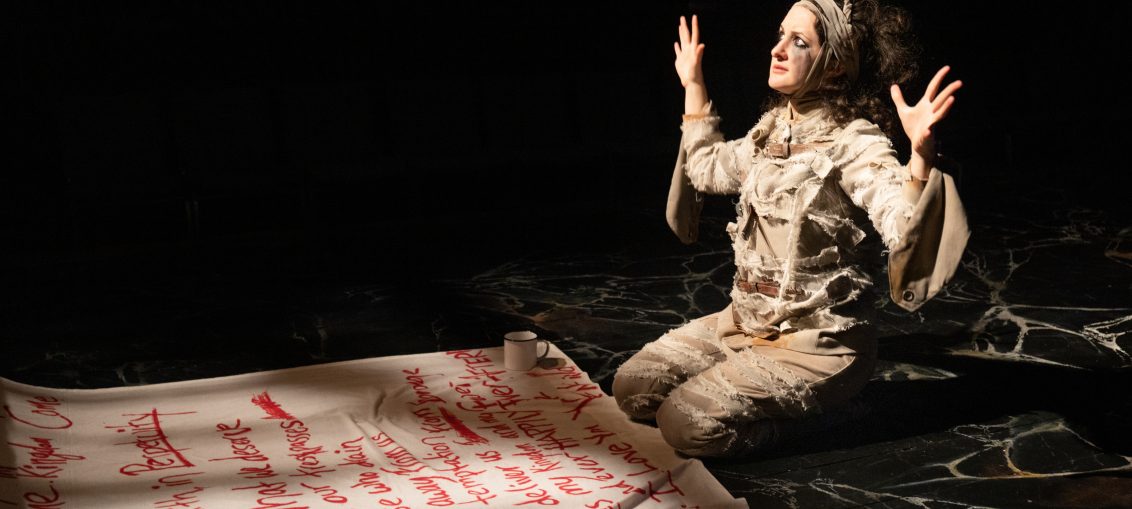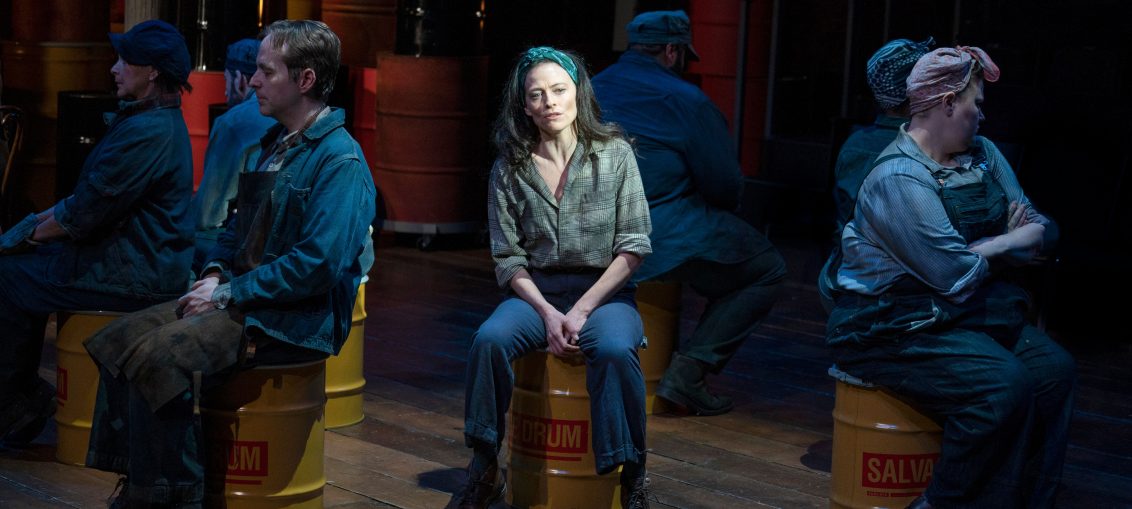For as many adaptations and interpretations as there are of the classic gothic horror novels Frankenstein and Dracula, it is hard to imagine two more creative, unique, radical and timely works that deal with the well-known tales and characters than the pair playing in a repertory cycle at Classic Stage Company (CSC). They are also strikingly contrasting works. Both are deeply engaging, provocative and compelling explorations of the source material -- each of which was written in the 1800s, one slightly predating the other near the end of the Victorian era. They remind the audience of timeless themes investigated in
Tag: Classic Stage Company
‘The Cradle Will Rock’ at Classic Stage Company
And some of the best people in town. Now I know what the dirty foreigners feel like. What is this, Russia? We don’t have to listen to talk like that. You’ve only got to hint whatever’s fit to print; If something’s wrong with it, why then we’ll print to fit. For whichever side will pay the best. The above vitriol is not from the president's Twitter account, Fox News or sticky bitter corners of the Internet and AM radio. They were written in 1937 by Marc Blitzstein for The Cradle Will Rock. His 90-minutes of persuasive theatre in protest as musical wearing a big red heart on
Yaël Farber’s ‘Mies Julie’ at Classic Stage Company
Not that loyal Classic Stage Company attendees need convincing, but updates are one way of attracting an audience. Through March 10, CSC is running two new adaptations of August Strindberg classics. One is Yaël Farber's Mies Julie, a harrowing reinterpretation of the Swedish playwright's most famous work. The darkness within nineteenth century Expressionism invite exploration, and Faber, along with director Shariffa Ali smash every crevice of the contemporary South African farmhouse kitchen where the fatal encounter between Julie (Elise Kibler) and John (James Udom) takes place. Like Strindberg's 1888 original, the 75-minute play focuses on the class war between the bored rich young
‘The Resistible Rise of Arturo Ui’ at Classic Stage Company
What does cauliflower resemble? Fossilized flowers? Dead algae? Brain tissue? Perhaps Bertolt Brecht had these and others in mind creating a "Cauliflower War" as the cataclysmic event of The Resistible Rise of Arturo Ui, his deliberately unfunny lampooning of Adolph Hitler. Brecht's protest play is now at the Classic Stage Company with a mesmerizing Raúl Esparza in the title role in John Doyle's uneven production. Brecht's inspiration for his 1941 play was Charlie Chaplin's The Great Dictator. Released one year before Arturo UI's premiere, Chaplin's intentionally funny film sends-up both Hitler and Mussolini. (Chaplin not only resembled Hitler, they were born days apart.) Unlike The
 Tuesday, July 1, 2025
Tuesday, July 1, 2025

